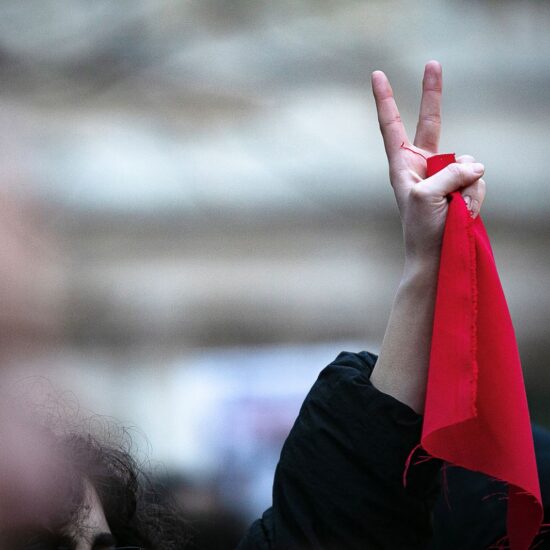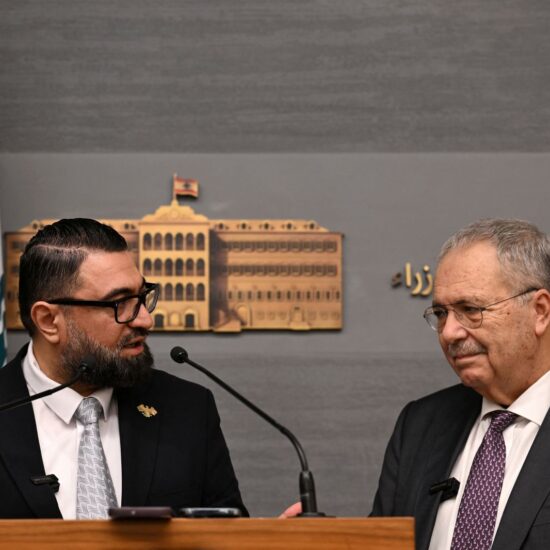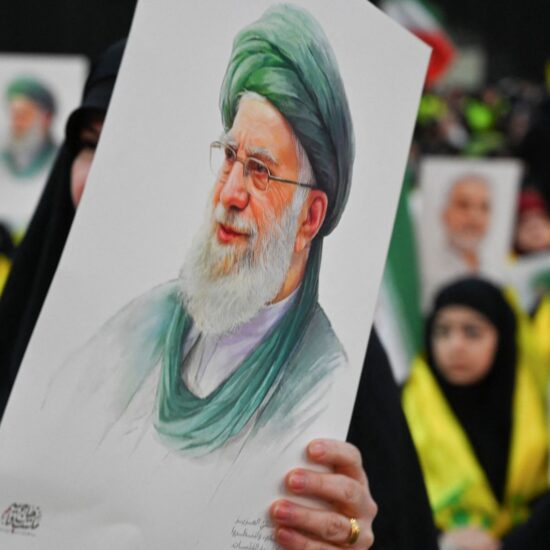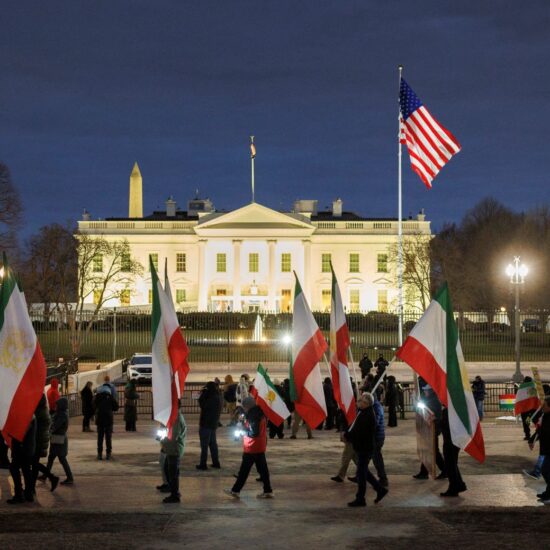
On limits, exceptions and paradoxes of boycotting
Two weeks after the start of the volatile cease-fire between Israel and Hezbollah, and a few days after the placement of a milestone in Syrian history – the fall of Assad – life in Dahieh seems to be back to normal, as normal as it can be to sit on dusty plastic chairs surrounded by rubble, remnants of what were once homes, sipping a bottle of Pepsi.
Of the shops that reopened in the very first hours after the cessation of shelling on the southern suburbs of the capital – while the border areas continue to be targeted by the Israeli air force – next to glassworks and hardware shops, there are dozens of small, modest cafes where one can have an espresso or a cold drink. All of them still have the fridges they received from the PepsiCo company, at the centre of the boycott campaign against Israel – led by the BDS movement, acronym for Boycott, Divestment and Sanctions – which has polarised part of the mass mobilisations in support of Palestine for more than a year, although its history of activism is much longer.
Founded on July 9, 2005, on the first anniversary of the advisory opinion by the International Court of Justice in which the West Bank barrier was declared a violation of international law, the BDS movement has succeeded, across the years, in many campaigns: among others, the divestment from targeted companies by Western governments and banks – such as Norway, Sweden, New Zealand and Luxembourg; the withdrawal of some international companies – including the French telecoms giant Orange – from the Israeli market; the cultural boycott of thousands of artists, as well as that of academic associations and student unions; UNICEF ending of its contract with security company G4S, in its Lebanese locations; and the closure, back in 2014, of SodaStream’s facility in the illegal Israeli settlement of Mishor Adumim, about 15 kilometers far from Jerusalem, in the occupied West Bank – built on the ruins of seven Palestinian villages that were destroyed, its inhabitants forcibly displaced to make way for a Jewish-only town – following a high profile boycott campaign against the company, owned by PepsiCo.
However, despite the BDS movement having seen the closure of the West Bank’s facility as a success – in line with their commitment to end Israel’s violations of Palestinian rights – the company’s new factory consequently built in Lehavim is also actively complicit in Israel’s policy of displacing the indigenous Bedouin-Palestinian citizens of Israel in the Naqab desert.
SodaStream remains in fact implicated in the displacement of indigenous communities, as its new Lehavim facility is close to Rahat, a planned township where Palestinian Bedouins are being forcefully transferred against their will. A series of satellite images clearly shows the rapid implementation of Israel’s industrial plan in desert areas mainly inhabited by Bedouin communities, as well as the forced urbanisation as a trigger for mass displacement. Although available images stop in the summer of 2023, reports have documented that Israeli demolitions in the Naqab have intensified in the last year, with up to 6,000 people in eight villages at risk of displacement.

Satellite image of Israel-planned township of Rahat, in the Naqab desert, and the nearby site of Lehavim before the construction of the new SodaStream facility, 2013. Source: Google Earth

Satellite image of Israel-planned township of Rahat, in the Naqab desert, and the nearby site of Lehavim after the construction of the new SodaStream facility, 2015. Source: Google Earth

Satellite image of Israel-planned township of Rahat, in the Naqab desert, and the nearby site of Lehavim after the construction of the new SodaStream facility, pinpointed, 2021. Source: Google Earth

Satellite image of Israel-planned township of Rahat, in the Naqab desert, and the nearby site of Lehavim after the construction of the new SodaStream facility, pinpointed, 2023. Source: Google Earth
At the same time, despite the closure of the West Bank facility in 2014, the illegal expansion of the industrial settlement of Mishor Adumim has been ongoing, in the open violation of international law, as clearly shown by the following satellite pictures, comparing 2013 to 2023.

Satellite image of the industrial settlement of Mishor Adumim, in the Israeli-occupied West Bank, before the closure of the old SodaStream facility, 2013. Source: Google Earth

Satellite image of the industrial settlement of Mishor Adumim, in the Israeli-occupied West Bank, nine years after the closure of the old SodaStream facility, 2023. Source: Google Earth
The price of a Pepsi
Sodastream, as a beneficiary of this plan, is complicit with the Israeli violation of Palestinians’ social, urban, and human rights: not to mention the company’s reported mistreatment and discrimination against Palestinian workers in its West Bank factory, 60 of whom were fired following a dispute over food for the breaking of the Ramadan fast.
In 2018, PepsiCo completed the acquisition of SodaStream and 50% of Sabra, both of which companies had taken advantage of the Israeli occupation of Palestine. The Israeli food manufacturer Strauss Group first bought 51% of Sabra’s operations in 2005 for about $9 million; in 2008 it signed a partnership deal with PepsiCo to acquire 50% of the operation and establish a joint venture in which each company held 50% of the shares.

Photograph of SodaStream’s facility in Lehavim, in the Naqab desert, 2019. Source: Google Earth
Moreover, on November 22, 2024, a company’s statement announced its agreement to acquire the remaining 50% interest in Sabra Obela and “become the sole owner of these companies, which make Sabra and Obela products.” This means that the Israeli food manufacturer Strauss Group is divesting its 50 percent stake in Sabra, the maker of hummus dips and spreads sold across the US, to its longtime partner US conglomerate PepsiCo for about $244 million. The transaction also includes the Obela brand, which was created to sell the same savory products to markets outside North America. Following the deal, in other words, PepsiCo will be the sole owner of Sabra and Obela products. “This move is another step in executing our strategy, which aims to focus on our core businesses and leverage our resources in the best possible way,” Strauss CEO Shai Babad told The Times of Israel. Strauss said it expects to record in its consolidated financial statements for 2024 a net profit estimated to range from NIS 319 million to NIS 325 million from the sale.
Strauss’ decision comes as Sabra sales in the US took a big hit and the brand has been struggling to regain its formerly dominant market share: at the height of anti-Zionist sentiment, since the beginning of the genocide of Gazans, at hundreds of supermarkets in North America and Europe, stickers denouncing Israel have been placed on Sabra product containers. In the three months ending June, Sabra sales generated NIS 110 million, down 5.5% compared to the corresponding period last year, while reporting an operating loss of NIS 2 million. Obela, on the other hand, had sales of NIS 17 million during the second quarter, down 0.2% compared to last year and an operating loss of NIS 2 million.
Moreover, by comparing PepsiCo’s annual report of 2022 to that of 2023, under the chapter entitled ‘Reduction in future demand for our products would adversely affect our business’, it is clear how, among the factors of “concern and perception” impacting “consumer preferences and products demand”, pandemics, epidemics or other disease outbreaks were mentioned in 2022, while in 2023 a strong insistence was given to “geopolitical events, wars and other military conflicts,” including as “a result of public boycotts.” Yet another proof of the efficacy of global boycotting against Israel’s attempts to greenwash its occupation economy.
The limits of boycotting
At the same time, though, paradoxical images such as bottles of Pepsi drunk in the rubble of Beirut’s southern suburbs are more and more common, with the normalisation of the destruction following the fragile truce, the expected lack of attention of the survivor communities – grappling with more pressing issues – and, above all, the untenability of the boycott for small businesses that were lucky enough to survive two months of intense Israeli bombardments. And now they cannot afford to sell anything but the products they bought before the war.
Not only does a boycott barely work – especially in a country like Lebanon, grappling with a five-year economic crisis – unless it comes from a state initiative, but PepsiCo imposes a contract on its dealers that for its duration prohibits the sale of other products, like the popular Saudi Kinza, making competition impossible.
Hadi, who has just reopened his shop in Dahieh, and has been displaced during the past two months of war with his entire family, is forced to sell PepsiCo products – including SevenUp and Mirinda – at least until January, when his contract with the company expires. When asked about the possible renewal of the contract next month, he is uncertain. “It is clear that we do not want to serve the interests of our aggressors, be it the Israelis or the Americans. They are responsible for all the destruction around us. But people don’t have time to think about what they want to drink or sell, we are tired, we want to live and we need to reopen our businesses.”
The company also provides retailers with a blue refrigerator with the logo of the drink, now naturally associated with the face of the Israeli occupation: it is controversial to see so many among the rubble caused by the same power. But the urgency of work, and the daily challenges of entire families whose livelihood relies on a small shop, makes the paradox somewhat acceptable.
“If the contract is terminated, of course, the refrigerator must also be returned,” says Ghada, owner of a small cafe in Hadath, another of the neighbourhoods destroyed by the two-month Israeli aggression. “So many sellers, including myself, who have already lost their homes, cannot afford the cost of a new refrigerator. So I am forced to sell products that will enrich the same people who destroyed my home. I have no other choice.”
As we speak, a teenager walks into the cafe, buys two bottles of Pepsi, then walks out, indifferent. “There, you see that?” asks Ghada. “The customers who boycotted during the war have now stopped, the feeling is that it’s over, even if it’s not. To convince consumers to buy, Pepsi has invested in a prize campaign, so by buying a bottle you can win gold coins, e-scooters, tablets and more. Sometimes it happened that some of the customers won, but there was no prize. They were scammed, and I am not surprised.”

Children playing with the rubbles of one of Dahieh’s destroyed buildings, two weeks after the beginning of the ceasefire between Israel and Hezbollah. Credits: Valeria Rando
It is clear that the issue is more complex than a simple individual stance: to boycott or not to boycott. Tony Nehme, a member of the Lebanese Franchise Association (LFA) – a body that represents foreign franchise owners in Lebanon and Lebanese brands franchised abroad – in a previous interview condemned the unproductive nature of the boycotts. “Most of the damage is done to Lebanese investors, who undertake to represent certain brands, and to their Lebanese workers,” he said, asserting that the vast majority of revenue generated by these foreign brands remains in the Lebanese economy, which has been in crisis since 2019.
It will also be worth recalling that both in 1982 and 2006, Israel targeted Pepsi company’s factory and stores in Choueifat, southeast of Beirut: more than against its own interests, at the expense of the Lebanese workers, who are once again struggling.
Yet, interviewed by NOW, the Campaign to Boycott Supporters of ‘Israel’ in Lebanon (CBSI) explained how boycotting, even at a personal level, is still worth it: even in a country like Lebanon, exasperated by a severe economic crisis. worsened by the ongoing war.
“In Lebanon, and theoretically across all member states of the Arab League” they said, when asked about the real productivity of a boycott campaign not implemented on a state level, “we have experienced the practice of official boycotts of the Zionist entity implemented by governments and their institutions. Lebanon has a boycott law that remains in effect to this day. This official boycott was not without impact; it played a significant role in economically isolating the entity for decades, causing direct and indirect losses amounting to tens of billions of dollars.”
However, with the onset of the peace processes, particularly following the Oslo Accords, the official boycott gradually diminished, at times nearly disappearing altogether. “Unfortunately, this decline did not pave the way for a sustained popular boycott movement,” the CBSI continued. This realisation prompted a collective awareness among certain activist groups that voluntary, grassroots boycotts could achieve sustainability and widespread impact. In fact, boycott campaigns such as theirs, along with the globally recognized BDS movement, have inflicted substantial economic losses on Israel – well-documented on the campaign’s social media platforms and on the BDS website, for instance. “It is also important to emphasize that one of the core objectives of our campaign, in addition to striving for economic isolation of the entity, is to promote and support the local economy.”
‘The worst before the bad’
“In our campaign, we adhere to a principle: ‘Boycott the worst before the bad, and boycott as much as you can’. Of course, we understand that there are certain situations where it may be challenging for a merchant to fully engage in the act of boycotting. However, we pose a question: how convinced is the merchant about the boycott, and how ready is he to embrace the idea? Is he genuinely convinced but feels powerless to act, or is he merely seeking an excuse to avoid committing to the boycott?” they wondered.
For those who are convinced or open to the idea, the CBSI offers useful advice. “If the issue of refrigeration provided by the company is difficult to resolve, start by phasing out the company’s products that do not require refrigeration. For example, eliminate the bottled water distributed by the company, as most people – especially during the winter months – do not need chilled water. Engage your customers by asking if they are willing to forgo the company’s products. If you find a reasonable number of customers willing to switch to products from another company not listed for boycott, take the initiative to attract them using commercially viable strategies. For instance, you might eventually be able to purchase a refrigerator specifically for storing alternative products.”
According to the activists, it’s not necessary to immediately eliminate all products from the supporting company: instead, they recommend gradually introducing alternatives alongside those products, working towards fully relying on the alternatives. “If, however, you find it impossible to discontinue products from a supporting company because it would jeopardize your livelihood, you are, of course, excused. But it is important to be honest with yourself and make every effort to contribute as much as you can to the boycott.”
One of the primary goals of the campaign is in fact to support local production. “We certainly do not aim to harm Lebanon’s local economy,” they explained. “To illustrate this, let me give an example. Suppose I advocate for boycotting McDonald’s. I fully understand that a McDonald’s franchise owner may have invested hundreds of thousands of dollars and employs a number of staff at the branch. However, I also know that the franchise owner is required to pay significant sums to the franchisor, which exits the local economic cycle. They are also obligated to purchase materials from the franchisor and even pay rent to them. This brings us to the crux of the matter: what is better for the local economy? That the franchise owner severs ties with the parent company and independently manages their branch, or that they remain under the company’s control?”
“Our aim is not to shut down branches as an end in itself,” they continued. “However, if a McDonald’s branch were to close, wouldn’t its customers simply turn to local restaurants instead? And if my assumption is wrong, show me a single study that demonstrates boycotting products tied to foreign companies harms the local economy. Does it suggest that if a Lebanese consumer cannot purchase these goods, they will stop or significantly reduce consumption altogether? I argue the opposite is true, until proven otherwise by a rigorous scientific study. Such evidence, if it exists, would certainly influence our tactics.”
Stepping outside the framework of boycotting Israel and its supporters, the campaign’s activists provided another example. “Don’t doctors advise to reduce smoking, if not quit entirely? Don’t they recommend healthy foods and sometimes advocate against or even ‘boycott’ fast foods high in sugar and unhealthy fats? Does this mean they are harming the local economy because their advice might lead to fast food outlets closing down?”, they wondered. “We fully understand that the impact of our efforts is cumulative. By the time we reach a stage where awareness of the importance and necessity of the boycott is widespread, we will have already succeeded in fostering significant societal change. This shift will inevitably influence investor behavior. The market for goods from supporting entities will become stagnant and unprofitable, replaced by local alternatives that do not harm the local economy but instead provide greater benefits than local franchises of foreign companies.”








